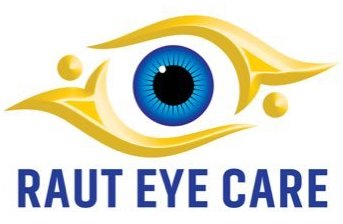Cataracts are a common eye condition that affects millions of people worldwide. They occur when the lens of the eye becomes cloudy, causing blurry vision and a reduction in visual acuity. Fortunately, cataract surgery is a safe and effective procedure that can restore clear vision. In this article, we will explain cataract surgery in simple terms, demystifying the process for the layman.
What is a Cataract?
Before diving into cataract surgery, it's important to understand what a cataract is. The lens of the eye is normally clear and focuses light onto the retina, allowing us to see clearly. However, as we age, the proteins in the lens can clump together, forming a cloudy or opaque area known as a cataract. This cloudiness obstructs light and impairs vision.
When is Cataract Surgery Recommended?
Cataract surgery is typically recommended when the cataract starts interfering with your daily activities, such as reading, driving, or watching television. Your eye doctor will assess your symptoms, conduct an eye examination, and determine if cataract surgery is the appropriate course of action.
The Cataract Surgery Procedure:
Preoperative Evaluation: Before the surgery, you will undergo a comprehensive eye examination to assess the severity of the cataract and to determine the power of the intraocular lens (IOL) that will be implanted during the procedure. The IOL is a clear artificial lens that replaces the cloudy natural lens.
Anesthesia: Cataract surgery is usually performed under local anesthesia, which numbs the eye area. This means you will be awake during the procedure but won't feel any pain. In some cases, a mild sedative may be given to help you relax.
Incision: A small incision is made in the cornea, the clear front part of the eye. This incision is usually less than 3 millimeters in length and is self-sealing, which means no stitches are required.
Phacoemulsification: Using a technique called phacoemulsification, the surgeon inserts a tiny probe into the incision. The probe emits ultrasound waves that break up the cataract into small fragments, which are then gently suctioned out of the eye.
Intraocular Lens (IOL) Implantation: Once the cataract is removed, an artificial intraocular lens (IOL) is implanted to replace the natural lens. The IOL is carefully positioned inside the eye, where it remains permanently. The IOL selection is based on your eye's measurements to provide the best possible vision correction.
Recovery: After the surgery, you may spend some time in a recovery area where the surgical team will monitor your condition. You will be given instructions for post-operative care, which may include using eye drops and avoiding strenuous activities for a few weeks.
Benefits and Risks:
Cataract surgery is considered safe and has a high success rate. The procedure can significantly improve your vision, allowing you to resume your normal activities with clarity. However, like any surgery, it carries some risks, such as infection, bleeding, or retinal detachment. These complications are relatively rare, and your surgeon will discuss them with you before the procedure.
Conclusion:
Cataract surgery is a common and effective procedure that restores clear vision for individuals with cataracts. By removing the cloudy lens and implanting an artificial lens, the surgery allows light to enter the eye properly, resulting in improved vision. If you're experiencing symptoms of cataracts, visit us to explore the possibility of cataract surgery.


